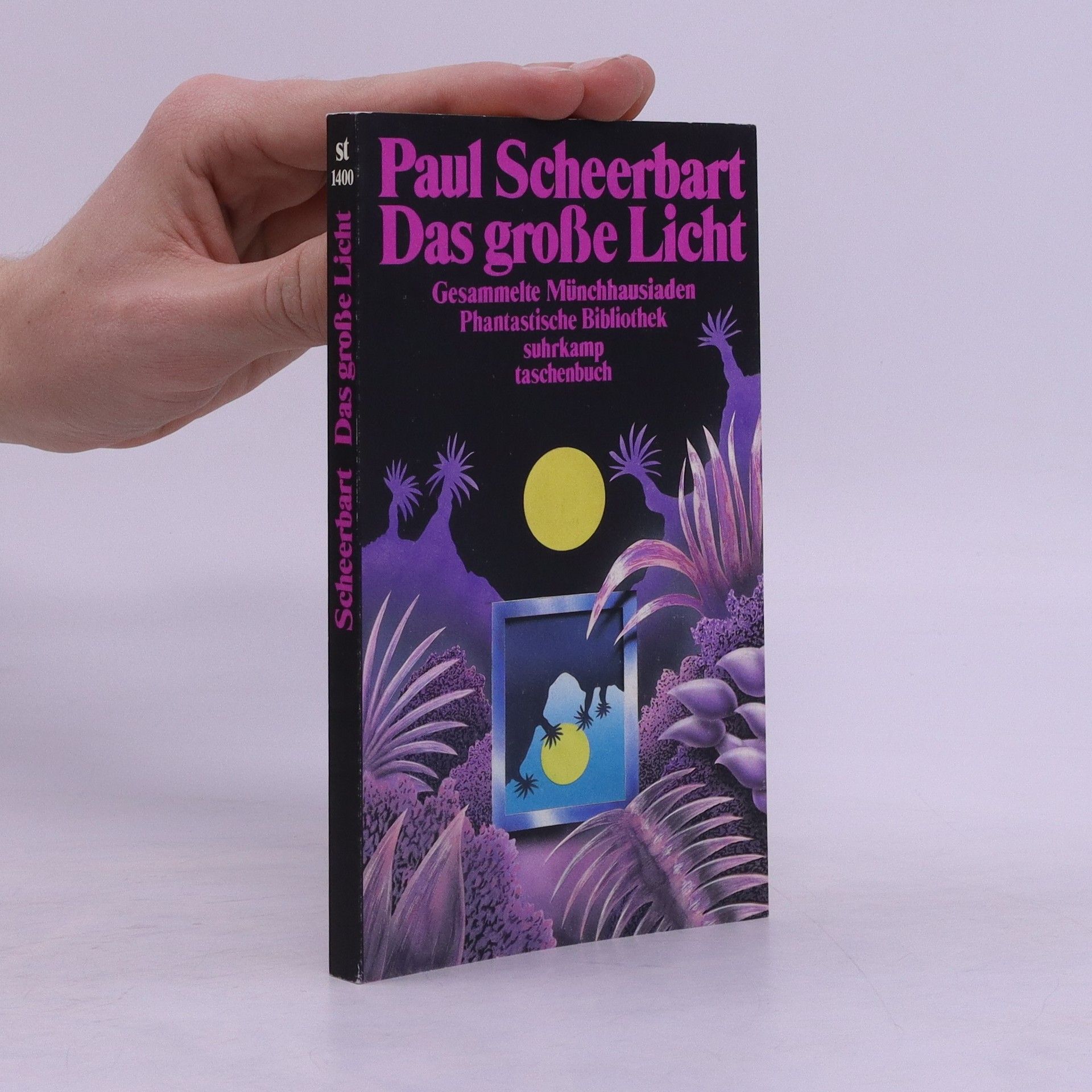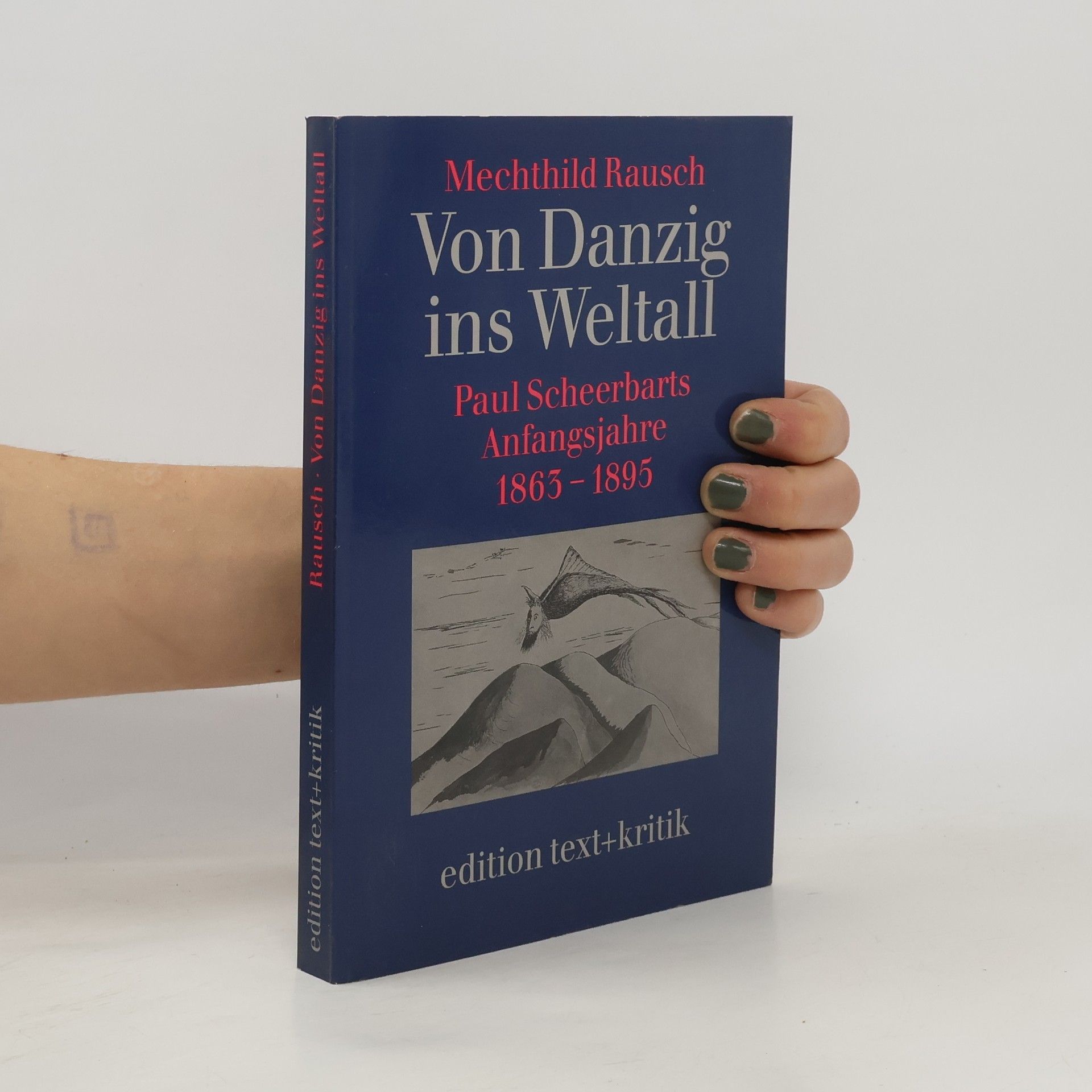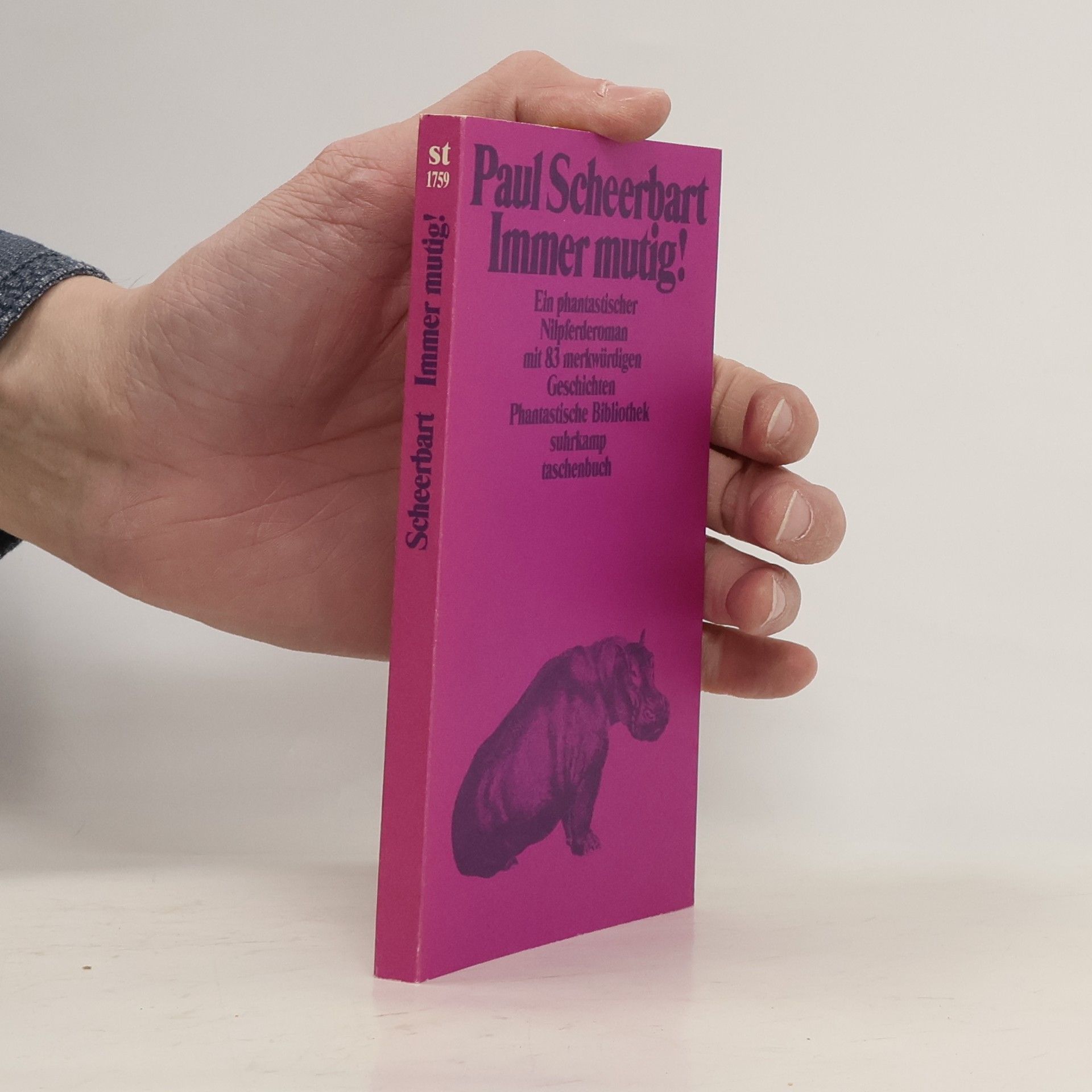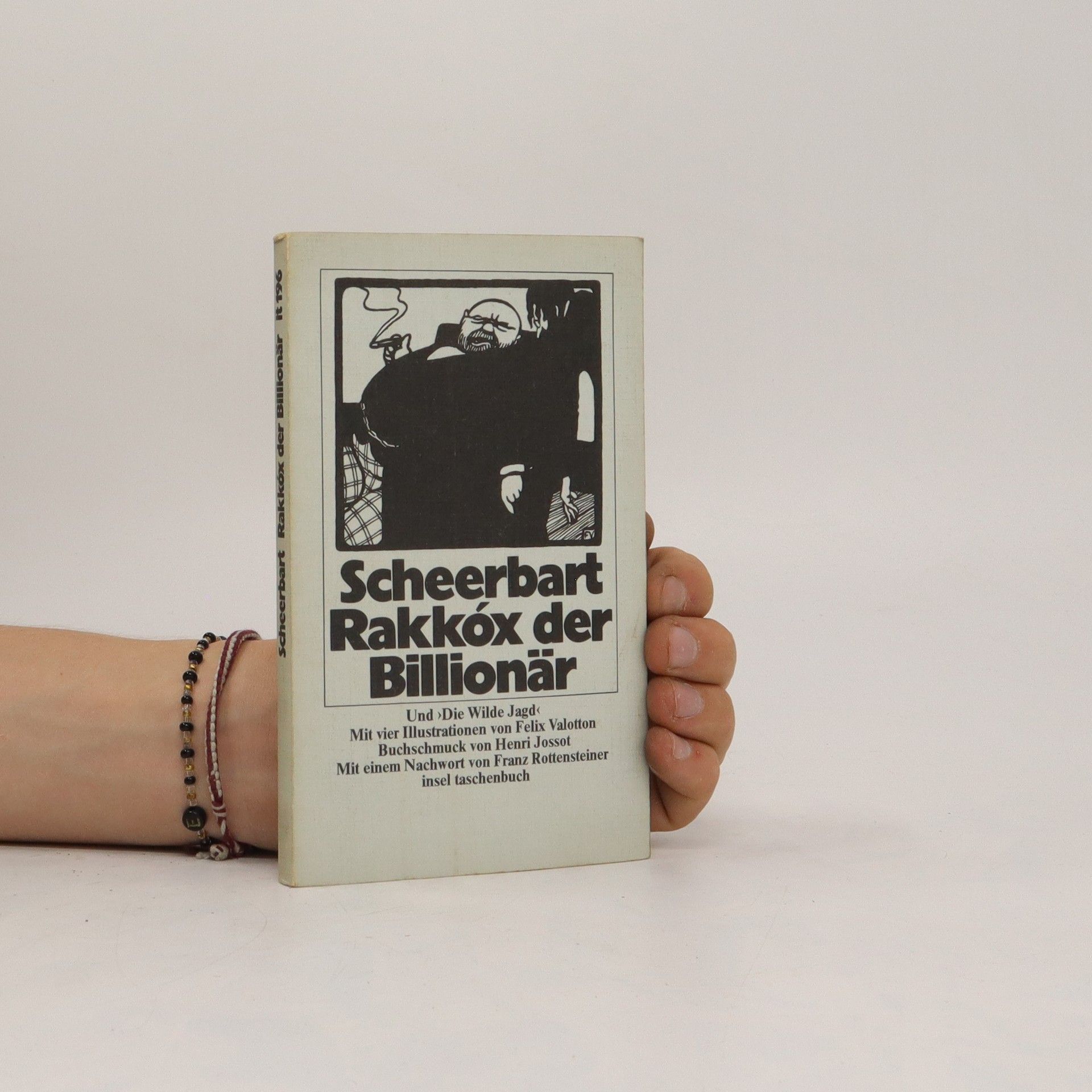Munchausen and Clarissa
- 152pages
- 6 heures de lecture
Paul Scheerbart était un auteur allemand de littérature fantastique dont les œuvres explorent souvent des visions utopiques et des concepts architecturaux non conventionnels. Son écriture se caractérise par une imagination ludique et un regard pénétrant sur la société, mettant fréquemment l'accent sur les éléments visuels et les qualités oniriques. Les écrits de Scheerbart offrent un aperçu unique de la littérature d'avant-garde, invitant les lecteurs dans des mondes remplis d'émerveillement et de pensée non conventionnelle. Son influence sur les mouvements artistiques et littéraires de son époque est indéniable, ce qui en fait une figure fascinante à découvrir.






The Victorian-era German cult novel, set in the mid-twentieth century, serves up a utopian vision of a future of glass architecture, as the protagonist, Swiss architect Edgar Krug, circumnavigates the globe by airship with his wife, constructing a wild variety of colored-glass buildings in various locales.
In "Die Unterzeichneten" empfiehlt Paul Scheerbart die Nutzung größerer Tiersorten wie Walrosse und Seelöwen für die Dressur. Mit innovativen Ausrüstungen wie kugelsicheren Hemden und künstlichen Flossen sollen diese Tiere in der Lage sein, die Meere kraftvoll zu bewegen. Scheerbart war ein deutscher Schriftsteller der phantastischen Literatur.
Aus dem Buch: "Und die Luft ist doch so still. Und die Menschen und Tiere sind auch so still, als wüßten sie gar nichts mehr zu sagen. Ein Schutzmann sitzt auf einer Parkbank unbeweglich mit einem Strolch zusammen – sie sehen sich unablässig an. Ein Regiment dekorierter Nachtwächter befindet sich vor dem Rathause in konstanter Präsentierstellung. Die Kinder sind in der Schule nicht mehr zu hören – so ruhig sind sie." Paul Scheerbart (1863-1915), auch unter seinen Pseudonymen Kuno Küfer und Bruno Küfer bekannt, war ein deutscher Schriftsteller phantastischer Literatur und Zeichner.
Paul Scheerbarts Anfangsjahre (1863-1895). Mit einer Auswahl aus den Lokalreportagen für den "Danziger Courier" (1890)
Paul Scheerbart entfaltete seine fantastischen und utopischen Ideen aus seiner Heimatstadt Danzig, die als Nährboden seiner Träume diente. Mechthild Rausch beleuchtet, wie sich Scheerbarts künstlerische Vorlieben und ästhetischen Maßstäbe bereits in Danzig formten, lange bevor er nach Berlin zog. Bislang war bekannt, dass Scheerbarts Leben um 1895 klarere Konturen annahm, doch über die Jahre davor war wenig bekannt. Es existierten lediglich zwei Buchtitel, einige Zeitschriftenbeiträge und wenige Briefe, sowie die Gründung des „Verlags Deutscher Phantasten“. Diese Monografie zielt darauf ab, Scheerbarts frühe Jahre zu beleuchten und bestehende biografische und bibliografische Lücken zu schließen. Zahlreiche Fehlinformationen über ihn und seine Werke sowie Missdeutungen seiner Persönlichkeit werden korrigiert. Überraschend ist, dass Scheerbart über ein Jahrzehnt als Journalist tätig war, insbesondere als Kunstkritiker für Berliner Zeitungen und als Lokalreporter für den „Danziger Courier“. Diese Rolle erfüllte der „weltfremde Träumer“ (Bruno Wille) fast ein Dreivierteljahr. Zudem wird seine enge Bindung an Danzig offenbar, die er gerne in eine „Idealstadt“ verwandelt hätte. Eine Auswahl seiner Lokalreportagen und eine Bibliografie seiner frühen journalistischen Arbeiten runden die Studie ab.
Paul Das große Licht. Ein Münchhausen-Brevier Leipzig, Rabinowitz, 1912. Das große Licht. Münchhausen in afrikanischer Sklaverei. Die kosmischen Postillione. Die drei Baumstaaten. Der Humor als Lebenselixier. Flora Mohr. Mikosai. Neue Gartenkultur. Die Perlmutterstadt. Auf der Glasausstellung in Peking. Das lebendige Mastodon. Das Gespensterfest. Oberluftkellner, Kohlensäcke und astronomische Reklamemanöver. Der Baron als Retter. Der Baron als Organisator. Der Baron und die Religion. Der Baron als Erzieher. Neuausgabe mit einer Biographie des Autors. Herausgegeben von Karl-Maria Guth. Berlin 2020. Der Text dieser Ausgabe wurde behutsam an die neue deutsche Rechtschreibung angepasst. Umschlaggestaltung von Thomas Schultz-Overhage. Gesetzt aus der Minion Pro, 11 pt.
Paul Katerpoesie / Die Mopsiade. Gedichte Paris, Leipzig (Ernst Rowohlt Verlag in Kommission bei W. Drugulin) 1909. Der Text folgt der 2.-4. Auflage, Berlin (Rowohlt) 1920. Die Berlin (Alfred Richard Meyer) 1920. Neuausgabe mit einer Biographie des Autors. Herausgegeben von Karl-Maria Guth. Berlin 2018. Textgrundlage ist die Paul Katerpoesie und Die Mopsiade. Eulenspiegel, 1978. Die Paginierung obiger Ausgabe wird in dieser Neuausgabe als Marginalie zeilengenau mitgeführt. Umschlaggestaltung von Thomas Schultz-Overhage unter Verwendung des Franz Marc, Pferd in Landschaft, 1910. Gesetzt aus der Minion Pro, 11 pt.
Bd. 1. Barthold Heinrich Brockes, Johann Gottfried Schnabel, Friedrich Gottlieb Klopstock, Christoph Martin Wieland, Johann Gottfried Herder, Johann Karl WezelBd. 2. Johannes von Müller, Karl Philipp Moritz, August Heinrich Julius Lafontaine, Wilhelm Friedrich von Meyern, Ludwig TieckBd. 3. Samuel Chriistian Pape, Friedrich de la Motte Fouqué, Leopold Schefer, Carl Spindler, Adalbert StifterBd. 4. Karl Ferdinand Gutzkow, Heinrich Albert Oppermann, Theodor Fontane, Karl May, Paul Scheerbart, Gustav Frenssen, Gottfried Benn, Ernst Kreuder, Rudolf Krämer-Badoni, Alfred Andersch, Arno Schmidt.